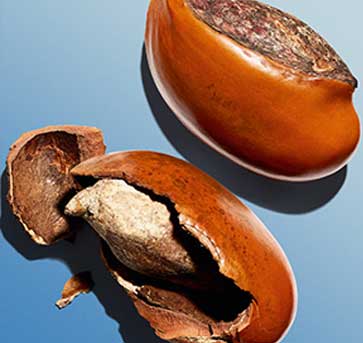Clarins’ sun cream FAQ
With over 40 years of experience, we know a thing or two about looking after your skin. At Clarins, we believe the best way to keep skin healthy is to protect it from the sun — and to protect it properly. That’s why it’s important to choose the right sun cream, with the right SPF, for your skin. But can sun cream go off? And does sun cream stop you from tanning? Here are Clarins’ answers to your most common sunblock questions.
Does sun cream expire?
Yes. For optimal protection from sun filters, we suggest replacing your sun cream every year. This is the only way to ensure your product is protecting you to the best of its ability, which is why Clarins’ sun care formulas are designed to last you for one season. To effectively protect you from sunburn, you shouldn’t keep products past the PAO (period after opening) indicated on each bottle.
How does sunscreen work?
Sun cream works by forming an invisible barrier on the skin’s surface which prevents the sun’s UV radiation from reaching your skin.
At Clarins, our eco-friendly sunscreen products contain two multi-protective complexes that shield your skin from harm and help to keep it nourished and hydrated. Clarins’ [SunFilterComplex] provides optimal chemical protection by absorbing the sun’s UV rays before they reach your skin, while our [SunPlantComplex] helps to prevent visible signs of photoaging and dehydration with extracts of Aloe Vera, Olive, and Senna. With a range of high- and very-high-protection products, Clarins’ sun care collection also uses antioxidant filters to protect your skin against damage from free radicals.
How often should I apply sunscreen?
Apply a golf ball-sized amount of sun cream at least 30 minutes before sun exposure to allow enough time for it to absorb into your skin. Sweat, heat, and water all break down the effectiveness of your sun cream throughout the day, so it’s important to keep yourself topped up. We recommend reapplying your sun cream every two hours (and always immediately after contact with water) to minimise your risk of sunburn.
Does sunscreen stop you from tanning?
No. No matter what SPF you use, sunblock will not prevent you from tanning. Remember though, the higher the SPF, the better your skin is protected from the harmful effects of UV. So while it may take slightly longer to tan, sun cream protects your skin from burning and peeling.
Does sunscreen block vitamin D?
Sun cream protects your skin by blocking the sun’s harmful UV rays, meaning it does also lessen the amount of vitamin D that can reach your skin. However, no sun cream is strong enough to block all UV radiation, so your skin will still benefit from some vitamin D while you’re outside. However, if you’re concerned about becoming deficient (or if you already are), you can take vitamin D supplements to keep yourself topped up.
What is the difference between sunscreen and sunblock?
Sunscreen and sunblock are often used interchangeably to describe products that prevent your skin from sun damage. However, they offer quite different forms of protection. Sunscreen is a chemical formula that absorbs and disperses harmful UV rays before they reach your skin, whereas sunblock sits on top of the skin and acts as a barrier. That’s why sunblock is typically a thick and creamy formula, while sunscreen has a much lighter texture.
Despite these differences, sunscreen and sunblock are both equally effective at preventing sun damage, so the best one for you to use simply comes down to personal choice. At Clarins, we have high protection sun care products to suit every lifestyle and texture preference. From mists and sticks to creams and sprays, find your perfect sun protection today.









